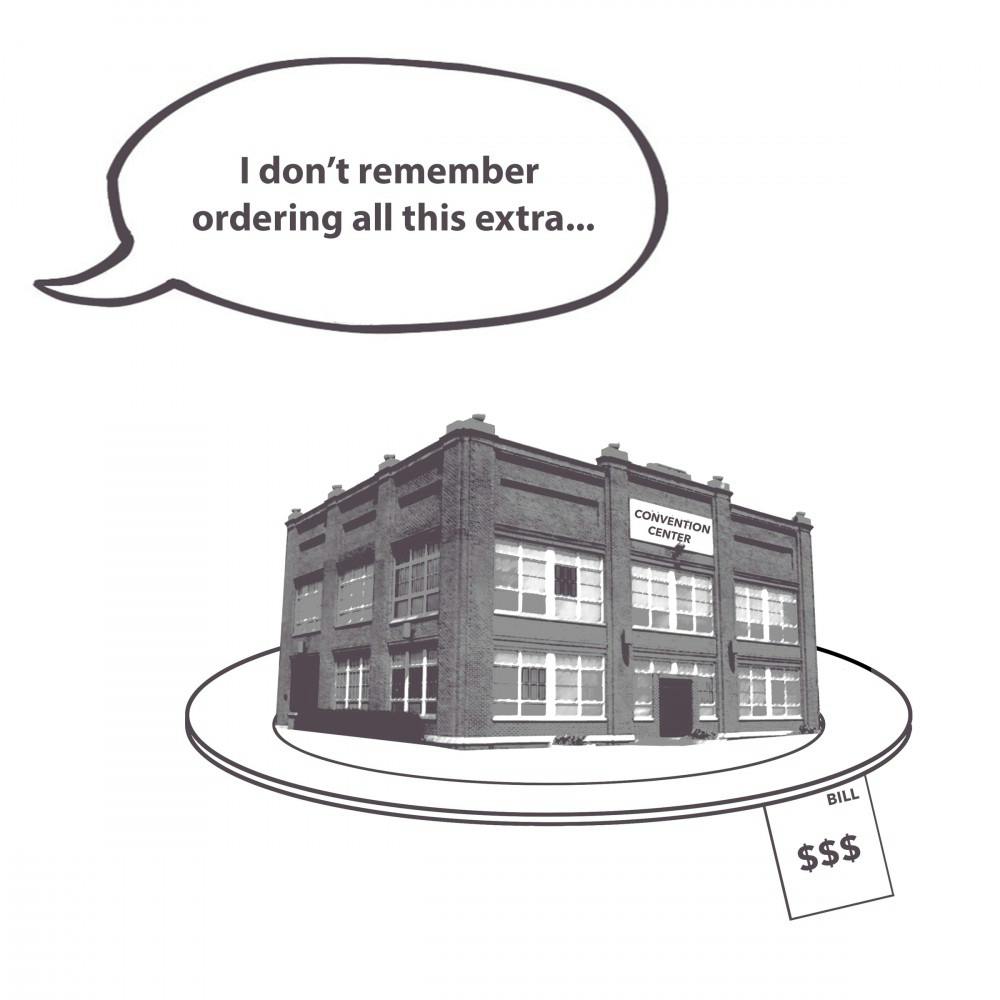Bloomington officials want to implement a 1 percent food and beverage tax in Monroe County to help pay for a new convention center.
The Editorial Board believes this tax could be reasonable. Expanding the convention center would be a great source of income for the county, but we wonder whether the convention center will actually benefit the people of Bloomington.
The convention center would cost approximately $72 million.
Bloomington and Monroe County would join other Indiana cities such as Martinsville, Nashville and Marion County in implementing a tax to pay for a convention center.
Supposedly, the city would put 85 percent of the tax money toward construction of the convention center.
The benefits of renovating the convention center would be an additional $17 million each year, construction jobs and permanent positions when the center opens. We love these benefits for the city.
Across the nation, cities such as Minneapolis, Minnesota; Miami, Florida; Virginia Beach, Virginia; and Omaha, Nebraska have higher food tax rates than the proposed tax rate for Bloomington.
In 2011, Fort Wayne, Indiana, expanded its convention center and implemented a food and beverage tax of 1.5 percent.
Despite the pros for this taxation, the Monroe County Citizens Against the Food and Beverage Tax group has been against this idea since 2013 and is protesting it again.
A member of the group, William Ellis, told the Herald Times this 1 percent tax would do more harm than good for the people of Bloomington and demanded it be stopped.
In 2013, 80.1 percent of people were not in favor of the food and beverage tax when it was first suggested to help renovate the convention center.
Ken Hydinger, in the comments section of a Bloomington Herald-Times article about the food and beverage tax revival, raised a good point: There have been a lot of new or renewed taxes that are starting to weigh on taxpayers whose incomes aren’t growing.
We wonder who, exactly, will benefit from a renovated and expanded convention center.
The convention center we have now has high rent prices that the average Bloomington resident might find difficulty in affording, considering average household income in Bloomington is $11,000 less than the average American household income.
There is no guarantee the food and beverage tax will be a temporary tax, either. The city could keep the tax on the books after the convention center were completed. Bloomington residents could be subjected to yet another tax that, once written, would never be repealed.
If the tax will genuinely help the public and be collected only until the convention center's construction, we say go for it.
But the concerns of those such as Ellis and Hydinger are valid, and the city should only move forward with the tax if it can prove it will benefit the average Bloomington resident.




